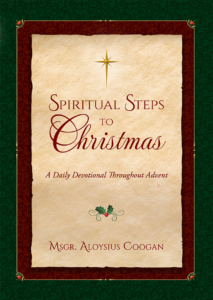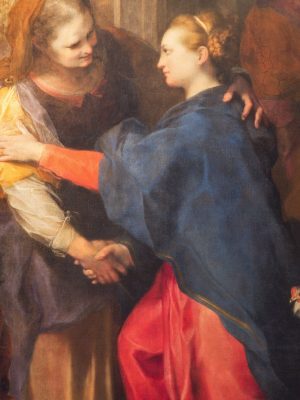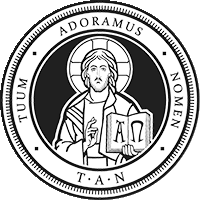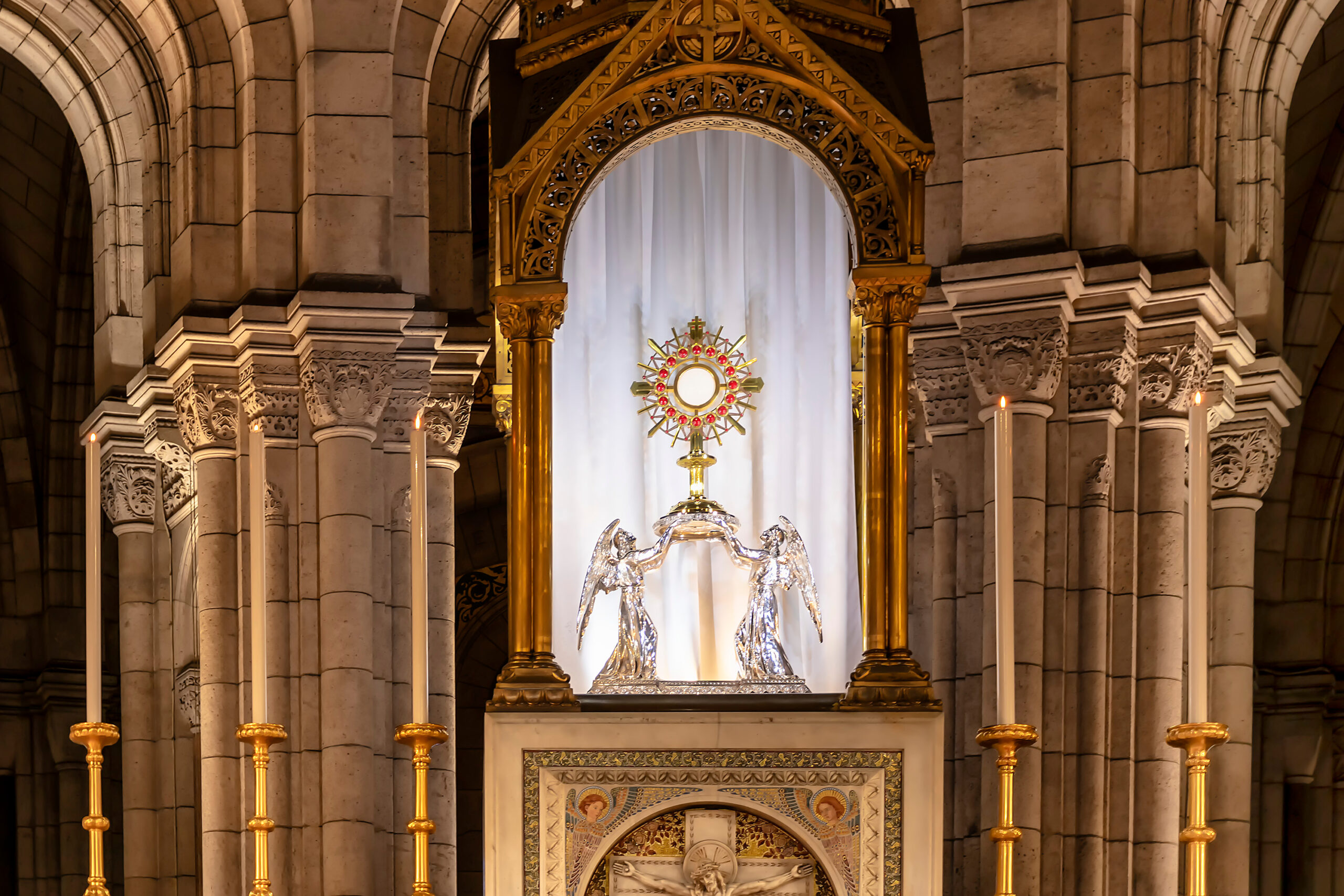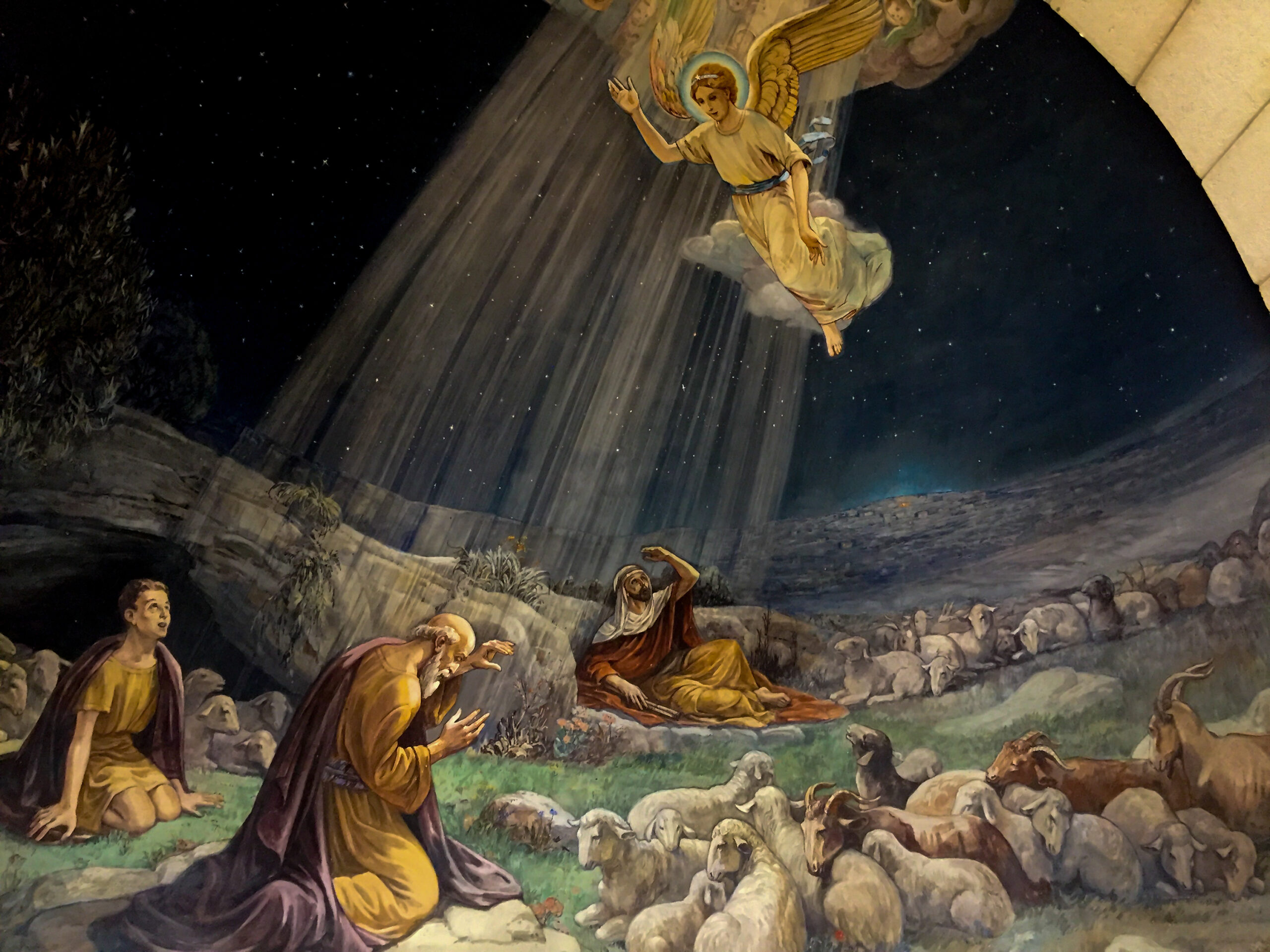The first word of the Mass of Gaudete Sunday, read in every Catholic church this morning, sounds the keynote of our faith. It is the Latin word, gaudete, which, being translated, means rejoice. It is a striking paradox that the religion of the cross is at one and the same time the religion of joy. The solution of this paradox lies essentially in the fact that Christianity is a religion of love, and in this world love and sorrow are linked by a mysterious partnership. Christianity is no worshiper of pain, nor is asceticism an offering to a pain-loving God as if life and health were not God’s good gifts.
Much rather is Christianity a form of love, and love, being the root of joy, it follows that the practice of the Christian religion gives joy not in spite of its cross but rather as its natural consequence. For we are taught from earliest childhood as an elementary truth that man is on this earth for the one end of perfecting himself in the love of God. We know likewise that only through labor, pain, and sacrifice is love perfected. Pope Leo XIII, of happy memory, makes clear this point when he states that “Christianity has no mission to eliminate labor, pain, and suffering from this world, but only to transmute them.”
In his encyclical letter on the “Rosary and the Social Question,” this great Pope and leader of Christendom speaks of the Sorrowful Mysteries of the Rosary as a means of correcting the false impressions of the world, namely, that suffering is repugnant and whatever is painful or harmful must be escaped. He goes on to state:
“A great number of men are thus robbed of that peace and freedom of mind which remains the reward of those who do what is right undismayed by the perils or troubles that may be encountered in so doing. Rather do worldlings dream of a chimeric civilization in which all that is unpleasant shall be removed and all that is pleasant shall be supplied. For by this passionate and unbridled desire of living a life of pleasure the minds of men are weakened, and if they do not entirely succumb, they become demoralized and miserably cower and sink under the hardships of the battle of life.”
With this fundamental truth, namely, that all joy is purchased at the price of sorrow and the crown of heaven won by the warriors who carry a cross, does Holy Mother Church impress us this Gaudete Sunday. The penitential colors of Advent today give way to the rose-colored vestments of joy. For “joyfulness is the life of man and a never-failing treasure of holiness,” says Sirach 30:23.
The solemn notes of preparation give way to the jubilant sound of organ music. Holy Mother Church chooses as her liturgical station today the tomb of the Prince of the Apostles in the Basilica of St. Peter in Rome, where today we hear the only voice of peace and joy in a world that verges upon war. Here today is heard the echo of Peter’s voice in the person of his successor, who is teaching us the lesson of Gaudete Sunday, namely, that all joy and peace can come only through Christ who first suffered and died before entering into His glory.
This article is taken from a chapter in Spiritual Steps to Christmas by Msgr. Aloysius F. Coogan, which is available from TAN Books.
